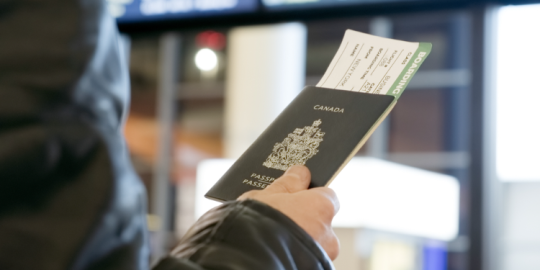Both the US and the UK have recently increased their student visa fees
The US and the UK are already study destinations with some of the highest non-resident tuition fees. Bad news for international applicants: In 2023, they have also increased their visa fees, and, in the UK's case, a healthcare fee is attached to this visa.
In March 2023, the US Department of State confirmed a proposed increase in the fees for multiple non-immigrant visas, including the F and M student visas and the J exchange visas. The most common of these visas is the F-1 (Academic Student) for full-time degree students at colleges and universities.
Effective June 2023, these non-immigrant visas to the US now cost US$ 185 instead of US$160, which represents a hike of over 15%. This is a smaller increase than what the Department of State had previously planned, but for many international students, especially those from developing countries with a weaker currency next to the dollar, this still affects their budget. Prospective students have to remain aware that this fee might increase again next year.
The UK's government has done the same thing, but the hike has been steeper there. Before October 2023, a student visa, which a non-citizen applied for outside the UK, cost £363. Now, it is £127 more expensive, that is £490. This is accompanied by a hike in the Immigration Health Surcharge (IHS) fee that is automatically included in the visa application process. Currently, the IHS fee is £470, but the British government announced in September 2023 that it would soon be increased to £776. They have not given an exact date for the increase, but it will most definitely apply to international students coming to the UK in the autumn of 2024.
The total cost for the visa plus the IHS fee means that international students will now need to pay a dramatic £1,266 just to enter the country – much higher than other expensive student visas, including the American and Australian ones. The UK government has justified this dramatic hike by saying it is necessary to fund upcoming public sector pay rises and key public services.
The IHS fee for work visa applicants will also increase by a dramatic 66% in January 2024. This will affect international graduates applying for the Graduate Visa, the scheme that allows them to work in the UK for 2 years post-graduation. They will now need to pay £1,035 instead of £624 for the IHS for each year of their work visa. This means that for a 2-year work permit, they will need to pay a £2,070 healthcare surcharge. As this hike was only recently announced, current international students who are planning to apply for the Graduate Visa in 2024 might not have budgeted for an amount that's more than twice as high as they were expecting.
Australia has raised the cost-of-living requirements for international students and might soon pass other reforms
As of October 2023, new international students in Australia have to demonstrate that they have a minimum of $24,505 (around US$16,000) to cover the cost of living for each year of their studies. This is 17% higher than the previous requirement. The government says this will ensure students' financial stability even in the face of inflation. This way, international students will be able to focus on their studies rather than juggle multiple part-time jobs, and they will be less likely to accept exploitative work from dubious employers just to make ends meet.
The government has also implemented other reforms to the education sector. It will assess the visa applications of international students deemed more “high risk” more stringently to detect any fraud. These students will need to provide extra documentation, and their visas will likely take more time to be issued. It has not been clarified yet who counts as a “high-risk” student, but based on previous news, it is likely to be those from countries like India, where many fraudulent education agents have been detected.
A dual-study visa loophole will also be closed. Previously, a loophole in visa regulations allowed international students to concurrently enroll in a second course that's different from their main academic degree before they had even studied for 6 months in Australia. This second course is vocational and was supposed to give them additional practical skills.
However, many used this route to switch entirely to the second vocational course, which is usually cheaper, or even to start working and give up studying altogether. This was often done in collusion with fraudulent institutions providing such vocational courses. International students will soon no longer be able to enroll concurrently in two courses like this. They will need to complete at least 6 months at their first institution before switching to or registering at any other institution.
Finland might soon impose higher tuition fees on non-EU/EEA students
The newly-elected Finnish government of the center-right National Coalition Party, which only came to power in April of this year, wants to reform the education sector. Some of its proposed reforms are highly controversial. This includes the proposal to impose total rather than partial tuition fees on international students from outside the European Union and European Economic Area. This would mostly affect students from China, India, Bangladesh, Pakistan and Sri Lanka.
Currently, international student fees cost between €4,000-€18,000 per year. These are partial tuition fees, meaning the Finnish state pays for the rest of their degree via public funds. However, the newly-elected government believes that these funds should be fully redirected towards local students and that non-EU/EEA should pay for 100% of the cost of their education.
Various student bodies and universities have contested this proposal. They believe that it is against Finland's democratic principle of accessible education and will make international enrollment at Finnish universities, especially smaller and rural ones, hit by a two-fold decrease.
The new government also has plans to make it more difficult for international students to claim state benefits. Among other things, they will need to prove that they have not received state benefits while studying in order to get a residence permit after graduating. The Finnish language testing requirements to get that permit will also be made more stringent.
















